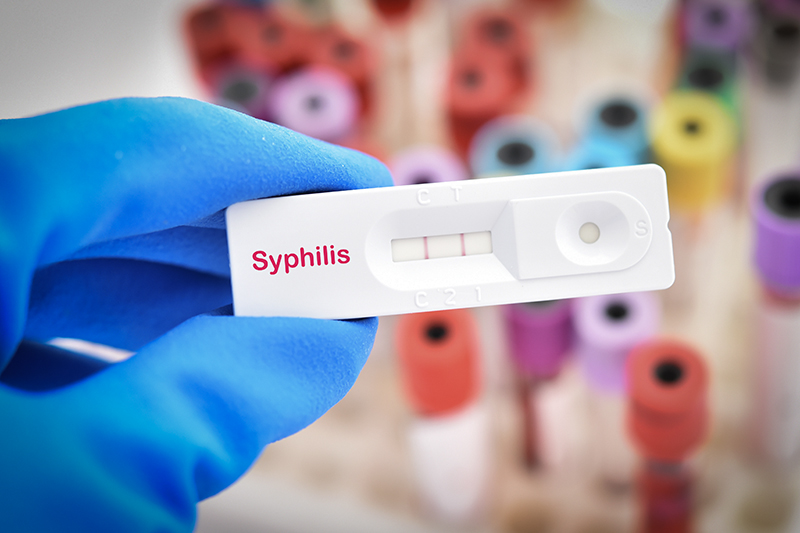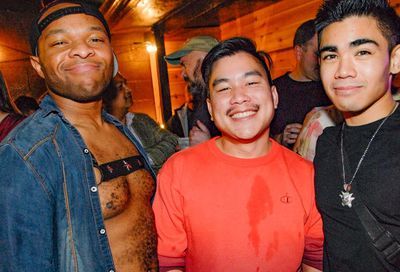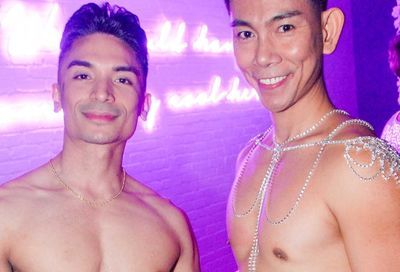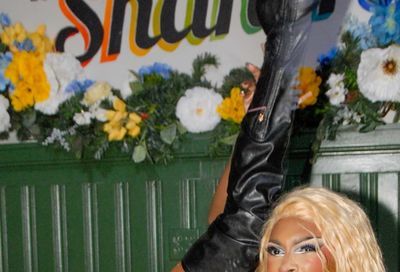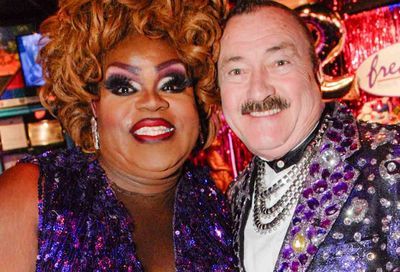Summit Strength
Advocate Christopher Dyer gets the conversation started ahead of the Gay Men's Health Summit – plus a peek at what's in store
MW: How much history do you have with the Gay Men’s Health Summit?
DYER: I went to my first one in 2008. That was in Seattle. It was a fascinating experience. The thing that was interesting about 2008 – the summit’s been going since 1999 – was there had been a gap, it hadn’t happened for a couple years. That’s why Seattle was very important. The summit was back! [Laughs.]
I thought it was going to be a professional education summit, and it was – but it’s also a little bit different. People go also to recharge and connect, to re-establish connections with the cadre of folks across the country who are doing gay men’s health. I was one of the only senior government folks there. The way the summit operates, we don’t really stand on titles, but I expected more public health departments to send people to these things. So I kept quiet, to a degree, because it was my first summit and I didn’t want to offend anyone. Then, in one of the sessions, as we were coming up with ideas to improve health, someone raised their hand and said, ”I don’t understand why we don’t try to do a health campaign around, you know, esteem.” Like this idea that Frank Kameny had of ”Gay is good.” What would this look like? When I got back, I started tagging every one of my Facebook posts, ”Gay is good.” Now people quote it back to me.
So I’m developing a workshop [for the 2012 GMHS] about how to build a national health movement around self-esteem. What does that look like?
MW: Is there any template for that?
DYER: I don’t know if there’s a template or not. But we’ll have the beginning of what a template looks like, of how you can make change in your own organization. How you can change your own life, your own universe.
MW: What sort of grade would you give the gay male community of America when it comes to looking after our own health?
DYER: I’d give us a B or a B-plus. I think we do look after ourselves. But looking at our community as a whole, I don’t know if we go beyond ourselves much. It’s kind of an interesting pathology on my part to want to be a health advocate.
MW: You could argue gay men have some strange values regarding health. Like, some of us might prefer using steroids to be buff, than being overweight. Or that it’s more acceptable to talk about getting really drunk than to talk about being sober.
DYER: I think there’s always a voice in the back of people’s minds: Do I have a problem? If you’re hanging our with a group of men you’ve been drinking with and you’ve done the shots and the boozy weekends, and your relationship is based, in part, on getting hammered, it’s incredibly threatening when one of your friends decides to get sober. I have had conversations go completely south in bars when I’ve been trying to pick up boys. When they find out I’m sober, and they’re drunk, it doesn’t work out. [Laughs.]
But that conversation can happen at a beach house in Rehoboth. It can happen in a Grindr message. I have friends who are active alcoholics, and I know it’s a tough conversation to have. But it’s an important conversation.
A year before I got sober, I met the women who got me in [to treatment]. I asked her if she wanted to go drinking with me. She explained that she was in [Alcoholics Anonymous]. I immediately started talking to her about my drinking and asked her if I had a drinking problem. She would smile and say, ”That’s something you’ll have to figure out on your own, sweetie.” [Laughs.] But then she’d drop hints.
My thought is, if we could train people in the community to feel comfortable talking to their friends about their drinking, to pull their friends aside after a bender and say, ”I love you to death, but I’m extremely concerned that you blacked out a couple days ago. Have you thought about getting some help?” If we could have that conversation, have that cohort of people, I think we’d make some significant changes. I’d like to have some conversations – we’ve had these at Whitman-Walker – about, you know, ”I’m really glad you met Joe, but why were you barebacking?”
I didn’t just get sober one day because I woke up and realized I was drinking too much. I had at least 25 different people in some way or another, intentionally or unintentionally, point out to me that my drinking was out of control and it wasn’t normal behavior. That collective sort of intervention – even though people might not have been aware that they were doing and intervention – helped me get sober. But in ’93 I got sober, which was in itself a miracle.
MW: Again, it’s probably more of a taboo in our community, and others, to discuss alcoholism than to be an alcoholic.
DYER: As someone who is openly sober in bars, I get a very interesting response. I spend a ton of time in bars. I love show tunes in JR.’s on a Monday. It’s a fun, fantabulous night. I go to karaoke on Tuesdays and I have a great frickin’ time. I go to Town nightclub occasionally on Friday and Saturday night and dance around and act the fool.
MW: Sometimes you’re even on the stage.
DYER: Sometimes I’m on the stage. And I am very open about being sober, and I get an incredibly interesting reaction from people. Most of it’s, ”Good!” Some are really surprised that I’m not drinking. ”Why not?” ”Because I’m sober.” And then I get the ones who are reaching out in a way they’re not aware of. They’ll justify to me that they don’t have a drinking problem.
MW: Talking about these different issues, it strikes me that when you bring up the idea of a gay men’s health summit, plenty of people are still going to think, ”HIV/AIDS summit?”
DYER: Right. It’s the elephant in the room. However, there have always been these other issues. There’s still a reluctance to talk about the really big elephant in the room, which is the collective impact of coming out and dealing with basically not feeling like you’re connected, and the impact of self-esteem on the health of gay men. And a reluctance of gay men – I think lesbians have the same issues, and bisexuals and the transgender community – in talking about how we can be nicer to each other, how we can help our self-esteem, for ourselves and our community. How we can be involved in each other’s lives in a way that happened initially with HIV, but still needs to happen.
I don’t want to say we’re all victims, because we’re not. We’re a pretty strong, tough community. You come out of the process on the other side, being more able to stand up for yourself.
MW: With the summit, what’s your invitation for local guys who may think a health summit has nothing to do with them? Why should somebody not working in health take a look?
DYER: Because we’re citizens of the world. This affects us. It’s about us. Look at the program. The things being talked about are things that have to be adopted by members of the community. We can talk about theory all we want, but unless community members actually come in and are engaged in spreading the message and becoming evangelists, so to speak, on health and taking care of yourself, nothing’s going to change.
MW: Do you have anything to add to that?
DYER: Get involved. Talk to your friends. Talk to your neighbors about being healthy – other than just going to the gym. Don’t be afraid to have the conversations. Get your HIV tests. Get involved in community organizations. Give money to community organizations. Continue to be fabulous. And, finally, gay is good.
The Gay Men’s Health Summit will be held Friday, July 20, and Saturday, July 21, at George Washington University. Registration is $85, or $65 for students and senior citizens. One-day registration is also available for $45. For more information visit gmhs2012.org.
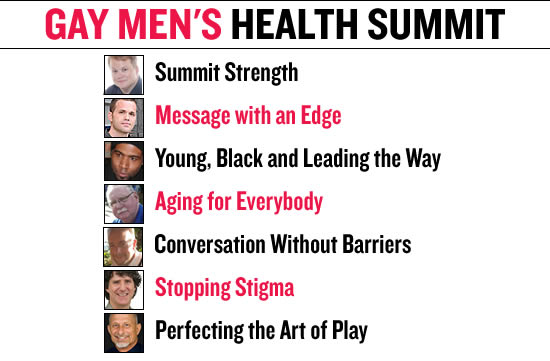
Support Metro Weekly’s Journalism
These are challenging times for news organizations. And yet it’s crucial we stay active and provide vital resources and information to both our local readers and the world. So won’t you please take a moment and consider supporting Metro Weekly with a membership? For as little as $5 a month, you can help ensure Metro Weekly magazine and MetroWeekly.com remain free, viable resources as we provide the best, most diverse, culturally-resonant LGBTQ coverage in both the D.C. region and around the world. Memberships come with exclusive perks and discounts, your own personal digital delivery of each week’s magazine (and an archive), access to our Member's Lounge when it launches this fall, and exclusive members-only items like Metro Weekly Membership Mugs and Tote Bags! Check out all our membership levels here and please join us today!




